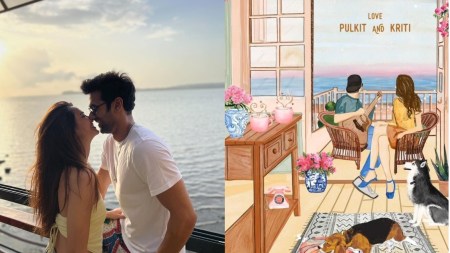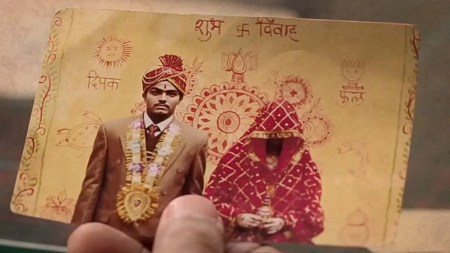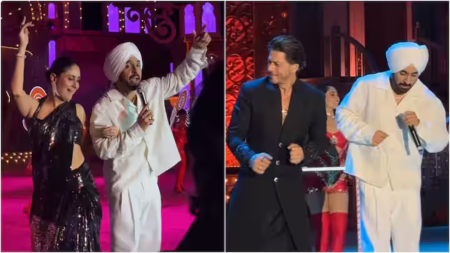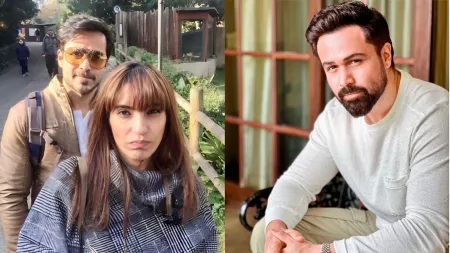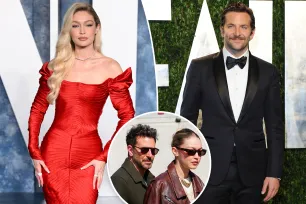2005 was a significant year for Malayalam superstar Mohanlal for various reasons. Although box office successes were not scarce in his career, he had not received any challenging roles since Sibi Malayil’s Devadoothan (2000). Most of the characters Mohanlal had been portraying since Ranjith’s Ravanaprabhu (2001) were cut from the same cloth, wherein he portrayed hypermasculine savarna saviours. While Mohanlal did impress with his performance as IG Veerappalli Srinivasan in Ram Gopal Varma’s Company (2002), even this role didn’t fully stretch his acting abilities, given his talent. Despite the blockbuster success of VM Vinu’s Balettan (2003) and Shaji Kailas’ Natturajavu (2004), they too didn’t delve deeply into showcasing Mohanlal’s finesse.
However, 2005 brought about a notable change for him. The actor emerged with several projects that explored new dimensions of his acting prowess, showcasing his talent to the fullest. In Rosshan Andrrews’ Udayananu Tharam, he portrayed a struggling assistant director striving to become an independent filmmaker, while Bhadran’s Udayon featured him in a dual role as a 75-year-old greedy farmer-landlord and his careless son. Joshiy’s Naran, meanwhile, depicted him as an innocent and orphaned local goon, and Blessy’s Thanmathra showcased Mohanlal as a middle-class man suffering from Alzheimer’s disease. Needless to say, he captivated audiences with his outstanding performances and all the films released that year, except for Ranjith’s Chandrolsavam and Udayon to an extent, were major box office blockbusters.

At the same time, 2005 also saw Mohanlal take on an unconventional project, especially for that era, as he starred in a silent short film, helmed by a 26-year-old debutant director. Nevertheless, among all his exceptional works that year, the one that raised the most eyebrows due to its fresh subject and unique treatment was this short film, titled Reflections, directed by Bejoy Nambiar, who later rose to fame helming movies such as Shaitan (2011), David (2013), Wazir (2016), Solo (2017) and returned to the director’s chair recently with his new directorial Por, starring Arjun Das and Kalidas Jayaram in the lead roles.
The short film, spanning less than 10 minutes, begins with a shot of a car’s front windshield, offering a view of the road ahead as the wipers clean the glass. The camera then focuses on a close-up of a boy’s eyes, suggesting he is observing passing scenery through the side window. A subtle background score accompanies the depiction of the car’s interior, where a man (Mohanlal) is seen driving, accompanied by a woman (Juhi Babbar) who appears to be his wife, seated in the back with her eyes closed, and a young girl, likely their daughter, playing with a doll in the front passenger seat.
Watch Reflections here:
As soon as one begins watching the short, its monotonous and silent nature could spark interest, prompting a question as to why such choices were made when the depicted images seem quite ordinary. The most one might anticipate is that it portrays the dynamics of a dysfunctional family. Mohanlal’s initial appearance in Reflections, resembling that of his in Chandrolsavam, might lead one to conclude that it tackles a simple subject.
However, as the short unfolds, it gradually becomes clear that such assumptions are far from accurate as two distinct worlds appear: one real and the other illusory, delineated by a thick line of imagination.
As the car moves forward, Mohanlal gazes at his wife in the back seat, who now stares aimlessly outside. He turns up the stereo and starts humming along to the song. His daughter happily joins in, but Juhi remains lost in thought. Eventually, realising his wife’s disinterest, Mohanlal stops singing, bringing silence back to the car. A moment later, Juhi starts singing, bringing smiles to their faces as they all create a core memory together.
When they arrive at a café and step out of the car, Mohanlal and Juhi hold hands, suggesting they’ve resolved their issues. As they sit at a table, Mohanlal notices a man nearby, smoking a cigarette. Upon closer inspection, he realises it is himself and a close-up shot of his drink transitions from black and white to colour, revealing that Mohanlal is actually sitting alone and imagining himself as part of the family that just entered the café. He had till then been reflecting on what his life could have been like with a wife and child.
However, he is no longer seen in his Chandrolsavam appearance, sporting a goatee and a well-groomed look. Instead, he appears dishevelled, with wrinkled clothes, an unkempt beard, and grey hair. Thus, Bejoy Nambiar conveys that the man’s reflections while sitting there were attempts to escape his loneliness and other mental health issues.
In a video segment for Cue Studio, extending birthday wishes to Mohanlal for his 60th birthday, Bejoy highlighted several Mohanlal films, including Thoovanathumbikal (1987), Sadayam (1992), Namukku Parkkan Munthirithoppukal (1986), Mithunam (1993), Chithram (1988), Vandanam (1989), Thalavattam (1986), Vanaprastham (1999) and Iruvar (1997), which influenced him as a filmmaker. A closer examination of these films reveals how they leveraged Mohanlal’s adeptness in conveying profound and nuanced emotions effortlessly, even through subtle gestures and glances. Reflections too similarly capitalised on this aspect of Mohanlal’s talent, while also using his potential to delve into the mind of a middle-aged man and his attempts to cope with his mental health issues.
As Reflections unfolds, Mohanlal’s focus quickly shifts to another couple, revealing his short attention span. He starts imagining another life with this newly noticed woman (Vidula Bhave), envisioning them seated on a bench in the middle of a body of water. He appears engrossed in reading a book while she attempts to capture his attention. Initially indifferent, Mohanlal eventually gives in and they share an endearing moment when the title of the book he holds becomes visible — Meet Moriarty: Eleven Tales of Deviance by Gautam Shiknis, providing further context and depth to the short film’s theme as the book explored the deviant aspects of human nature.
Bejoy Nambiar, born and raised in Mumbai to a couple hailing from Kannur, was just 26 when he made Reflections and the work came at a time when Indian cinema lacked significant or groundbreaking films, underscoring the emerging need for the industry to embrace fresh talent, and short films were also less common as platforms like YouTube were not as prevalent.
However, Bejoy had previously emphasised that the “little” finesse seen in Reflections was the result of dedicated teamwork, as everyone contributed to its creation. In fact, Mohanlal wasn’t the only renowned film personality on the team of Reflections. Its cinematography was handled by Satyajit Pande alias Setu, who later gained fame as a DOP for films like Kahaani (2012), Dedh Ishqiya (2014), Dangal (2016) and Laal Singh Chaddha (2022). Additionally, the short featured acclaimed editor Akiv Ali, known for his work on films such as Murder (2004), Gangster: A Love Story (2006), Once Upon a Time in Mumbaai (2010), The Dirty Picture (2011), Yeh Jawaani Hai Deewani (2013) and Kaabil (2017).
“Reflections was born from a fit of rage I had. Though I enrolled in a filmmaking course in New York, I couldn’t join it as I was deported from the US after an argument with an immigration officer in Detroit. So, my dream of becoming a filmmaker came to a standstill. Afterwards, I decided to learn on the job and educate myself by making films. I worked on about 10-12 short film ideas to gain enough experience for feature films. That’s how it all began,” he explained during a conversation with Radio City India, adding that he first narrated the story to Mohanlal’s brother-in-law, producer Suresh Balaje, to get an opportunity to narrate the story to the superstar.
After Reflections, Bejoy joined ace filmmaker Mani Ratnam as an assistant director on the latter’s Guru (2007). Although it took him four more years to debut as an independent filmmaker with the highly acclaimed crime thriller Shaitan, he later went on to create several widely discussed movies. Nevertheless, Reflections will hold a significant place in his repertoire, not only as his first project but also as one that initially highlighted his potential.
Disclaimer: The copyright of this article belongs to the original author. Reposting this article is solely for the purpose of information dissemination and does not constitute any investment advice. If there is any infringement, please contact us immediately. We will make corrections or deletions as necessary. Thank you.
